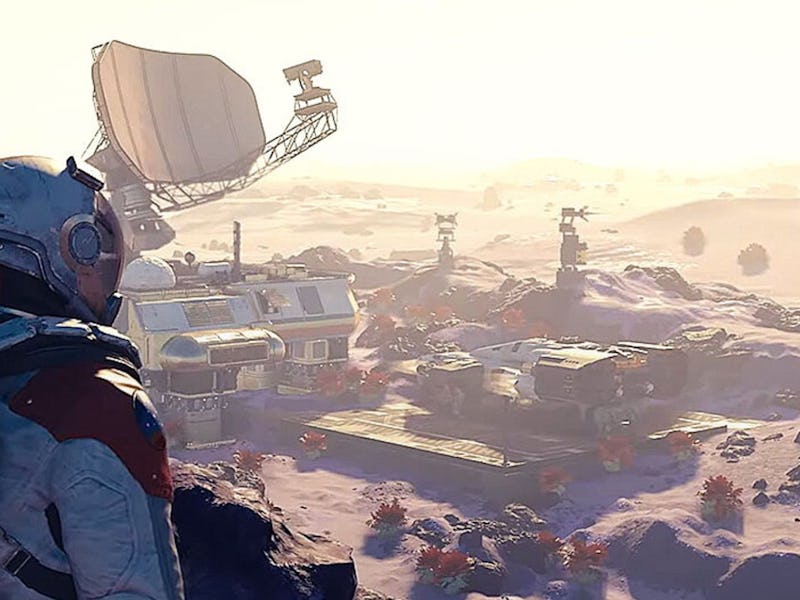Starfield Skill Tree Breakdown Hints at a Surprisingly Complex Colony System
Hiding in plain sight. Kinda.

Bethesda is well-known for crafting massive, complex RPGs with loads of interlacing systems and mechanics. It's been five years since it announced Starfield, and expectations are sky-high for this to be the studio’s biggest game yet. Now, an enterprising fan might have given us our best look yet at how things might pan out, detailing the game’s massive skill tree, which suggests a complex planet colonization system.
On the Starfield Reddit, a fan that goes by asd89dhd scrubbed through all of the publicly footage and built their approximation of skill tree for Starfield. There’s an accompanying Google Doc that compiles every piece of info we know about the skill tree, providing what could be a comprehensive look at what to expect. There are undoubtedly some interesting details, on top of plenty that you’d already expect for a Bethesda game.
The image, shared by asd89dhd, could give us a look at Starfield’s entire skill tree.
Many of the skills are familiar, like boosting damage resistance or enhancing stealth. There are also some less conventional abilities, like the ability to use oxygen to slow down time, or the return of a Fallout classic that shows infections from contaminated food.
What’s most interesting, however, are all of the skills that relate to planet colonization. We already knew players could colonize discovered planets in Starfield, but it seems like the whole system might be quite a bit more involved. A skill called “Planetary Colonization” apparently lets you build settlements on unclaimed planets with a breathable atmosphere. As you rank this skill up you’ll cut down on the resources you need to use, and can even install heavily armed patrols to defend your outposts. The net skill “Route Management” lets you establish trade routes between any two colonized planets or outposts, and again if you level it up you’ll increase the defense of your route.
Another skill called “Orbital Defense lets you build Star Stations in orbit around your colonized planets. All this seems to suggest that spreading your influence through the universe, and then defending it, could be a major part of Starfield’s gameplay loop.
Starfield’s colony system sounds remarkably similar to the settlement-building in Fallout 4, just scaled up.
There are plenty of other skills that tie into the outpost system. “Outpost Engineering” lets you construct additional modules like Research Labs, “Commerce” constructs trading outposts on planets with merchants, and how “Leadership” lets you assign leaders at settlements and outposts.
All of this sounds remarkably similar to the settlement building of Fallout 4, just on a much grander scale. With how long Starfield has been in development, it’s possible Fallout 4’s system could have served as a testing ground or early version. But it felt fairly limited and entirely disconnected from the main quest. But with interplanetary routes, it’s easy to see how Starfield’s system could tie into the various factions of the universe.
Could we see big intergalactic battles as factions vie for control? Can you commit your outposts to help strengthen one faction, thus opening them up to more attacks? At this point, we only have the most basic idea of how this system works.
Bethesda has touted the overwhelming size and scope of Starfield, and there are more than 1000 planets in the game, a mix of designed and procedurally generated environments. It’ll be interesting to see how many planets can be a part of this grand outpost ecosystem, and how much that’ll tie into Starfield’s overall mechanics and narrative.